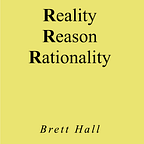On the declining standards in schools
Now all of this is said, as usual, with the background knowledge in mind that coercion is an evil, compulsory schooling is wrong and the first article I ever constructed for my website was about how coercive, compulsory schooling should be done away with: https://www.bretthall.org/learning.html
So modulo all that:
Here is an article explaining how writing standards have declined in Australian schools. It is from a left leaning newspaper. But it is the conservative side of politics that typically bemoans declining standards. https://www.smh.com.au/education/we-can-use-the-word-illiterate-the-writing-crisis-in-australian-schools-20221017-p5bqfb.html
There are literally hundreds of such articles because they come out multiple times every year with predictable, if sporadic regularity. Whenever any standardised test is performed an article like that is written. And who writes standardised tests? People from the teaching profession. And who benefits from telling everyone that standards are declining? The schooling system which invariably needs “more resources” - whatever that means. Higher wages for teachers and perhaps changed conditions like less “face to face” teaching time per teacher.
People from both sides of the political spectrum - but very much leaning heavily conservative - tend to complain about “declining standards in schools”. As if more and more students are somehow able to read and write less. This is a trend that has a decade’s old tradition in complete defiance of the actual numbers. Literacy and numeracy rates have never been higher - not merely in the wealthiest western nations but across the world. Cf: https://www.weforum.org/agenda/2022/09/reading-writing-global-literacy-rate-changed/ or if you don’t like that how about: https://www.visualcapitalist.com/cp/visualizing-literacy-rates-around-the-world/
There is no decline in literacy in modern nations like Australia or the USA. Any decline ticks within the margin of error and is best explained by the tests themselves changing and, a lesser factor, people immigrating from non-English speaking countries. But that number is so small as to barely effect things. Children are not losing the capacity to read and write. Period. Reading and writing is itself changing - to screens, tablets and phones. As it should. Why aren’t we testing adults on the capacity to send texts at a rate of 20+ per minute including at least 3 pictures and 2 original memes? There’s a test the pre-teens might pass and the adults would not know where to begin. And yet the skills involved in that complex task will indeed be portable to something. I can’t imagine what right now - but I know that texting and reading off screens and manipulating what’s on them at speed will be more useful than making sure a semi-colon is not being used where a dash should have been.
Today teens are routinely using complex technology to be creative in ways never before imagined. In order to merely socialise with their friends they must be adept users of technology, competent writers and be able to navigate complex algorithmic style procedures in order to get the technology to perform the tasks needed. Kids today have never been more knowledgeable, numerate and create on average. And isn’t that what education is all about? Comparing people to standards, to averages?
What has changed is not so much the quantity of knowledge forced upon students (that has only increased) - but the kind and quality. Because the curriculum is so packed with other (often less useful) things - like, say, learning the history of the constellations named by ancient cultures - other (often less useful) things are cast by the wayside. Few students now bother learning long division because few mathematics teachers know how to do it anyways.
But when pundits speak about the decline in education standards they inevitably come from the conservative side of politics. They demand a return to basics - as if students today can’t read and write (they can, better than ever) and as if they cannot do basic mathematics and think critically (on both counts students today are using technology to complete feats in both areas that make what their parents and grandparents did seem positively antiquated in comparison). But here’s there real rub: the conservatives who complain about declining standards are asking the people with whom they typically disagree most strongly on political and educational issues (namely those who tend to go into the teaching profession and especially those who go into the administration and management of the teaching profession) - to yet again insert more into the curriculum or make changes to the curriculum and so on. Or to make specific content changes to a curriculum those very people will be responsible for writing and delivering. How is that supposed to work?
Here’s how it works. I have rarely fallen back on my experience in these matters (an appeal to authority if ever there was one) - but I was both a teacher and a curriculum writer. I sat on committees that crafted the curriculum that was delivered to hundreds of thousands of students each year and because in this particular system the curriculum was mandated by a certain in-house policy of changing every 7 years - whatever curriculum was devised would ultimately be delivered to some millions of students. The changes mattered.
But here is what happens. A politician can insist on particular changes. The decisions made are, in theory, passed on to a bureaucrat - a head of some government department. Now neither of these people write the curriculum. Whatever is wanted needs to be interpreted. The political ideology of the politician and the bureaucrat might be completely different. A bureaucrat with a lot of integrity will of course pass on the instructions faithfully from the politician. But then it is filtered through various levels of management and finally it can come to a person called a curriculum manager. This is the person responsible for writing the curriculum. This is the person who has many policies and “frameworks” and even legislation to work within. So any change will be made in the context of a vast number of competing interests. Committees from “diverse backgrounds” are brought together (this is where I came in) and meetings are had. Many meetings on and off line. Everyone has their own little barrow to push about what should be in and out. What stands out for me, in my particular case, was one year where the United Nations Sustainability Goals were being used to inform the curriculum. How could we connect some of the science content to “sustainability” as the UN understood it?
Educators have deep deference for the United Nations as an institution. The United Nations may as well be to educators as The Vatican is to regular Catholic Church goers. Revered and, really, the source of truth on doctrinal matters. So if one did not agree with their notion of “sustainability” or “environmentalism” or the clear disconnect between the reality of our modern world and the virtues of, say, energies such as fossil fuels and nuclear power stations - there was little room in which to explore alternative perspectives on these things. What I am saying here is that everyone in the system is, basically, on the same side of the political fence and indeed quite far to the left of that divide - on almost all matters. Education and education policy is extremely “faddy’ - it follows fashions and trends unlike anything else in society except maybe fashion itself. One can bemoan declining standards in schools because one does not like what is being taught there all day long and one can be a politician with, ostensibly great authority and one can even win elections with huge majorities. The problem is, if everyone - almost everyone - in the system you are trying to change is completely against you then you can order, instruct, legislate, compel all day long. The interpretation of those instructions and laws will ultimately happen at a bureaucratic level and then delivered by a teaching class - both of whom might have their own ideas about what to deliver to students and how. And what can you do about that exactly? There are no - or extremely few - conservative teachers waiting in the wings to change things. You can’t fire the bunch of them. Who would replace them? You can’t write the curriculum yourself - where would you start? Are you a science or mathematics or history expert? You might think you’ll get an outsider to just write a curriculum and impose it on a school. Good luck with the teachers not either walking out or simply ignoring it. And, here’s the real kicker - the students will be on the side of the teachers in this broadly speaking. Teaching is about relationships. Teachers spend hours each day with those students. They help then learn particular things and take on certain perspectives. Their perspectives.
One final note on all this. The claim standards are declining is often about how a particular nation has performed more poorly than some other nation on some standardised test. According to the results on some standardised test (often the so-called “PISA” rankings are used) nation A has slipped 10 places and is now “below China” in the rankings across mathematics, science and even languages. The PISA test and others like it take a sample of students each year from each nation and tests them. Then it ranks the nations based on the results. Who do you think writes the questions for the tests? People invested in education. Who do you think has an interest in making advanced nations feel as if they are falling behind? People invested in education. Why? Well isn’t that why more funding is needed? Isn’t that the way curricula continue to be forced into having changes made? Isn’t that why we think standards are slipping?
In whose interests is it to keep testing and saying your nation’s educational standards are slipping? Those who would benefit from what politicians do when they feel they have to do something about declining standards.
Conservatives who agree standards are slipping are doing the left’s work for them. They are agreeing “more education is needed”. They are agreeing changes (which usually cost money) need to be made. And they will be. And next election cycle once the next result of test scores come around - little has changed. The nations that “rote learn mathematics tables and where 13 year olds are doing calculus” will again appear higher on the league tables than Western nations. And why? Because they mistreat their children more. They have them attend after school tutoring for hours at a time so the students get less than 7 hours sleep each day because they are doing little more than school work. The children are abused so that test scores can be higher.
Is this what we want to emulate? Just so we can say we did better on a test constructed by people you’d disagree with politically anyway?
Let us keep our creative, rebellious youth. Let us keep them questioning and criticising us. It’s at heart what separates the dynamic fast paced and advanced societies we inhabit from their opposites. If you disagree politically with the teachers and the administrators and seemingly almost the entire ideology of the education system there really is nothing for it but to Ignore the tests and take your kids out of school. But that’s the reason to do that. Not declining standards. Because they are not declining. We can only measure declining standards using a test. But who makes tests and grades them? And if you say: well kids today can’t do what kids of yesteryear did. Well so much is true in reverse. Give a kid of 1975 an iPhone and ask them to create a funny 60 second video with background music and special effects and they would think you’d have asked them to perform magic. And you would be in a sense. Kids today can use computers. So they need to read. They need to be numerate and most of all - above all else - they need to be creative to stand out and they know they need to use technology to do something that will set them apart from their peers. They know who their heroes are: and almost all of them are creators of some kind or other. They don’t need to know what their parents know - to a large extent - to succeed and thrive in a world which is rapidly changing. Standards are declining - no. Standards are changing. One is expected to be adept with technology. One is expected to know how to make and curate instagram reels. One is expected to know a little about how not to be a loser on line (something their parents might need to learn) - indeed that’s important. One needs to know how to navigate from anywhere in the world to anywhere else in the world - a skill the greatest navigators on Earth never imagined would be possible without complex mathematical and astronomical techniques using sextants and incomplete maps. Now a child can plot a course form anywhere to anywhere else in seconds using the google maps app.
A child today, could if they wish, be more informed than the 6pm newsreader was in the 80s. If they chose to be. Most do not. And quite right. They’re busy being children - online exploring a world that is far bigger than being informed about the news of the day. They are playing with their friends. Okay, so often it’s not outside. But often it is - remember Pokemon Go? And whose fault is it they are not going outside anyway? A generation of adults was scared of…other adults - strangers! Most of all kids today are doing things their parents don’t understand. They are often teaching their elders how to use software and hardware that they simply dive into, unafraid to explore and rapidly incorporate into their lives as if they’ve gained another limb. This is a good thing. Just because many adults just don’t like it, or just because there are some dangers, does not mean it is not overall a good thing. To the conservatives out there, it is just like those on the left who argue cars or fossil fuels are not overall a good thing. In both cases they are. But there are dangers too. So too with all technology. But if you ever wanted a generation exposed to the most benign but beneficial technology ever - you’d want the generation of children today. And tomorrow. Standards are changing. If the standards were found by testing kids of using technology to create and then critique different creations we have the most amazing generation ever. So, they can’t do long division. They can code. So, they can’t recite the wives of Henry the VIII. They can tell you about 101 other celebrities. In my experience they can still tell you the first 20 elements of the periodic table. Or at least some of them can. But that’s always been the case.
Don’t buy into “standards are declining”. That is a political dog whistle from people invested in the educational system as it is. We want our students to migrate away from rote learning and memorisation. We want them to be rebellious and creative and solve problems of interest to them. You may not like it. But then neither Socrates (if Plato is to be believed) nor Aristotle did not think much of the youth of around 350BC either. In fact let’s just take a look at the history of declining standards throughout the ages. Consider any of these:
https://proto-knowledge.blogspot.com/2010/11/what-is-wrong-with-young-people-today.html
Note that the quote attributed to Socrates is not due precisely to Socrates. But that quote is an accurate record of the mood of the times. Here is some history on that summarised by me in an earlier newsletter: https://bretthall.substack.com/p/manners-and-misattributions#details
And one final thing. We in the West - the USA, the UK and Australia among other places are said to be falling behind places like China in terms of science and mathematics performance in school based exams and number of undergraduates in science degrees. China trains their students to rote learn in order to pass exams. Any nation could do this. To learn the corpus of knowledge already gained and not question it. We in fact do that to a large extent. But to an extent less than places like China. So of course on tests that examine rote learned material we perform more poorly. But we are more creative. We are not stealing China’s technology. They are stealing ours. Our science graduates go on to create apps, and rockets, self driving cars and new kinds of entertainment and far more besides. We are doing what has not been done before. We are criticising the ideas that everyone already knows so we can make progress. We are on the right side of the line dividing dynamic and static societies. Let’s keep it that way. Let’s celebrate the fact we allow standards to change. We allow rapid change. We allow progress in the best, most optimistic sense of the word. We objectively improve the state of the world and in this our children lead the way.











